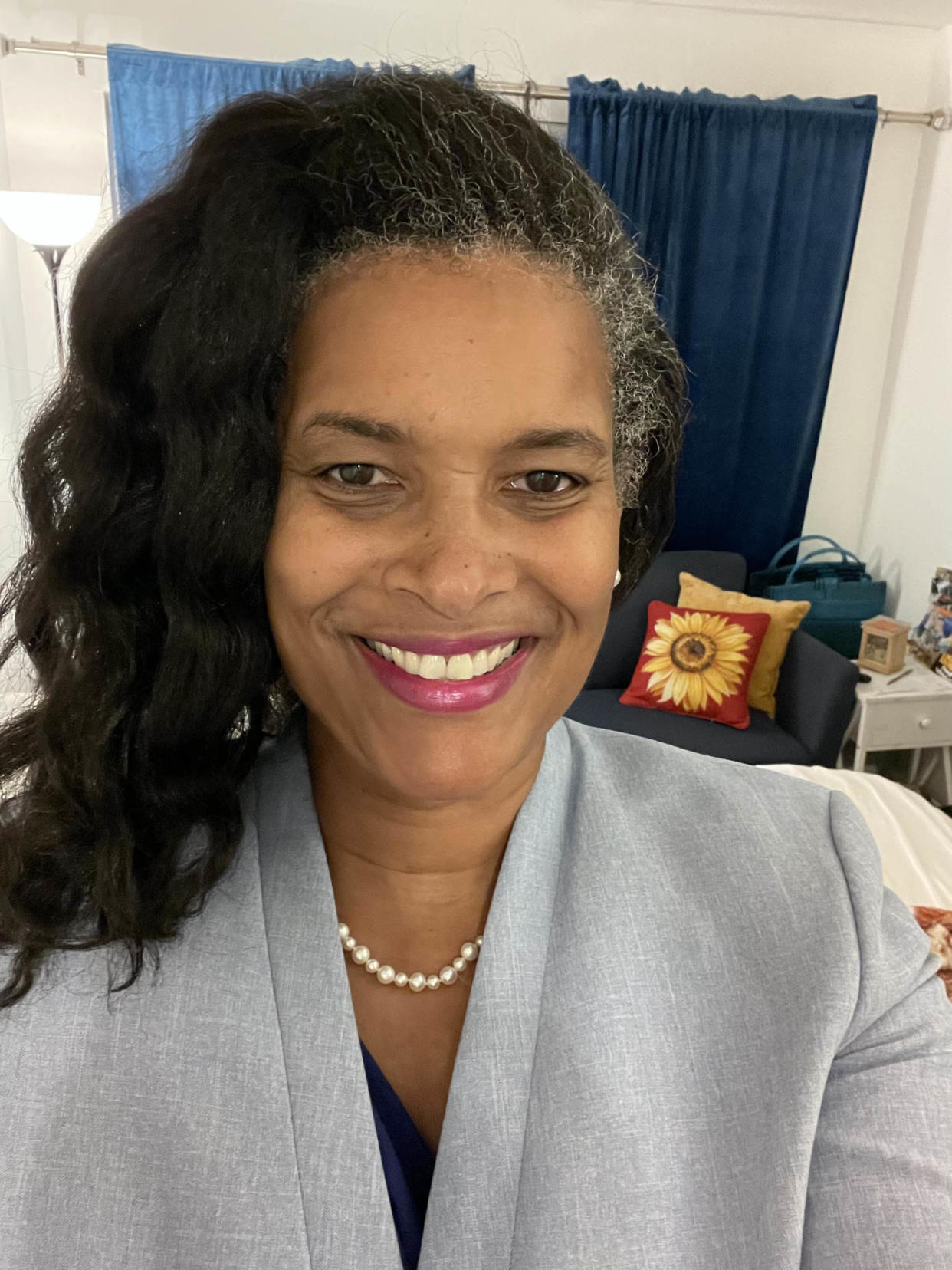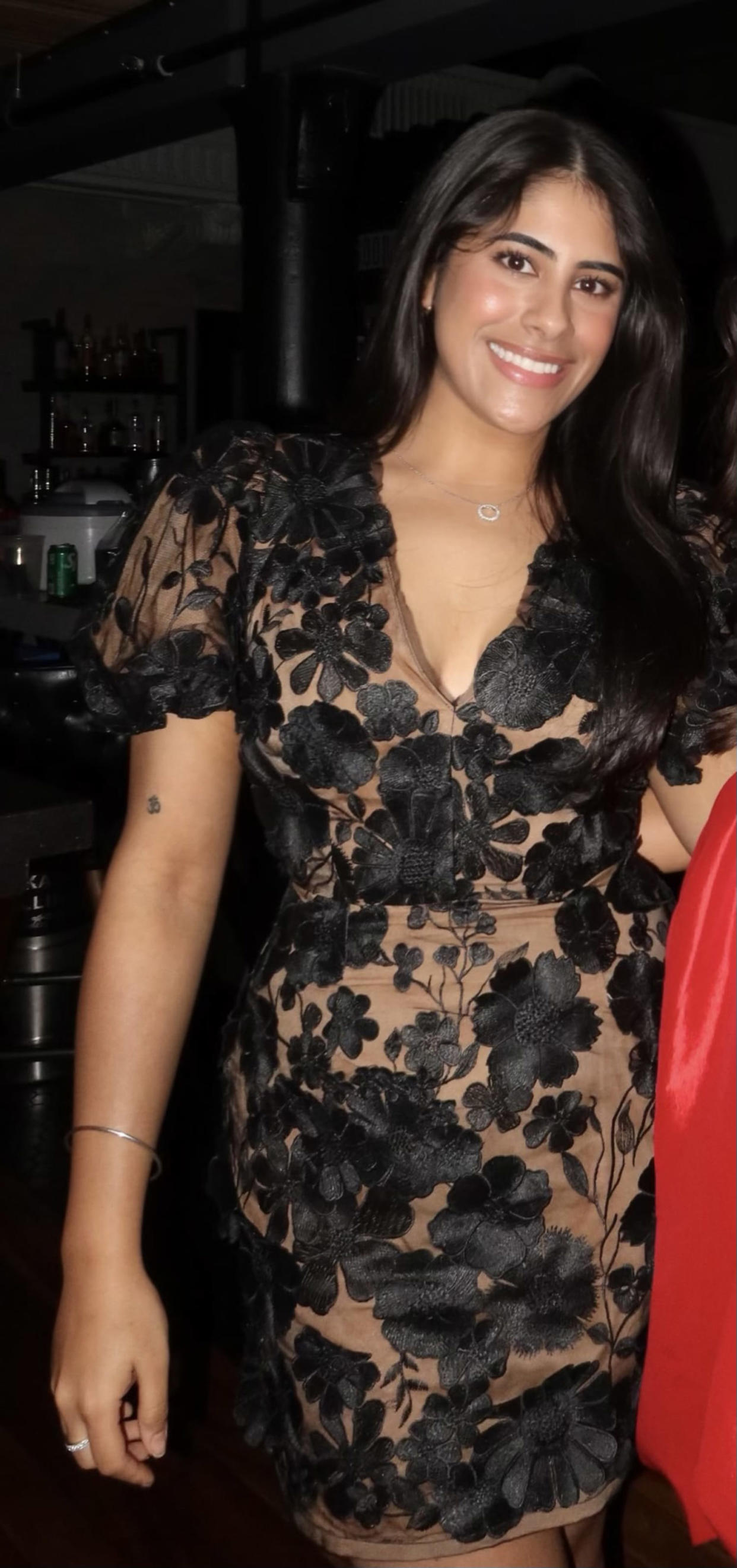Considering a unique baby name? Marijuana Pepsi would like a word
Marijuana Pepsi Vandyck didn’t realize her name was unique until she entered a new school in fourth grade.
The other children pointed and stared while teachers whispered to each other, “This is the girl I was telling you about” and asked Vandyck, “Why would (your parents) name you that?”
“I didn’t feel accepted, like I had a ... bullseye on my back,” says Vandyck. Already a quiet introvert and gifted student, she adds, “I folded into myself.”
It wasn't just kids, either.
“Grownups in my new school building and community at large — all strangers to me — boldly and blatantly approached and surrounded me regularly,” Vandyck, 52, an educator who splits her time between Florida and Maryland, tells TODAY.com. “They asked intensely personal questions about my name, my parents, what they did for a living, and cast negative aspersions on their characters for naming me.”
Growing up with a name that's truly unique has its disadvantages, unwanted attention being one of them. But Marijuana Pepsi and some others with one-of-a-kind names say they are proud of their names, and wouldn't change a thing.
What it's like having a unique name
A few teachers nicknamed Vandyck “Mary” as a little girl, figuring it would be less distracting.
Vandyck’s mother Maggie learned of her daughter’s new name when she won a spelling bee and a certificate addressed to “Mary Jackson” (Vandyck’s maiden name) was mailed to their home.
“That didn’t go over well,” recalls Vandyck. “My mother came to school — you could hear her coming down the hallway — and she threw a fit, saying, ‘You will not call her Mary. Her name is Marijuana Pepsi!’”
“It was the best thing my mom could have done for me,” says Vandyck.

Now in her 50s, working in higher education, Vandyck says people still react to her given name by asking what they should call her.
"Address me by my name," she replies — or they can call her Dr. Vandyck.
“My name," Marijuana Pepsi Vandyck says, "is my super power.”
What’s in a name?
A lot, as Vandyck discovered during her first year teaching at an Atlanta school.
“We received a one-page roster with our students’ names ... and I heard a teacher saying, “My test scores are going to be s---,” she recalls.
Confused, Vandyck looked at her own student list, which did not contain test scores or grades. When she asked a colleague why the teacher was upset, they responded, “Look at the names.” Vandyck says the first three names belonged to Black students.
The perception of the teacher, she says, was that students with identifiably "Black" names would not succeed. That inspired Vandyck’s dissertation, titled “Black Names in White Classrooms: Teacher Behaviors and Student Perceptions.”
She doesn't categorize her own name as a stereotypically Black name. On the contrary, Marijuana Pepsi is truly unique. But her research on the significance of names is still cited today.
According to baby name expert Laura Wattenberg, the creator of Namerology, parents in the United States generally have free rein when it comes to baby names, unlike other countries with stricter naming laws. Certain states do restrict special characters, letter count, obscenities and numbers.
“It’s a freedom that Americans take for granted,” Wattenberg tells TODAY.com.
“There’s no such thing as a normal, ordinary name anymore in America,” says Wattenberg. “No name is as popular as John and Mary used to be, or David and Jennifer — and some parents put pressure on themselves to choose a distinctive name. The problem is, popular means it’s common because it’s well-liked.”
Unique names can be more of a risk.
Why Marijuana Pepsi?
Vandyck, whose sisters are Kymberlia (born Kimberly) and Robyn, says she “worked up the courage” as a child to ask her mom for the story behind her name.
Mom Maggie (who would later change her name to Brandy) said the name “Marijuana Pepsi” would take her daughter “around the world.”
“My mom — who is the real story here — was a free spirit who pushed against the status quo and society’s expectations for women,” says Vandyck. Vandyck’s father was a devout Jehovah's Witness who opposed her name but “forceful” Maggie won, says Vandyck.
As an adult, Vandyck reconnected with a nurse who worked in the maternity ward when her mom, then 19, gave birth.
“She said the hospital was not going to allow my mother to give me that name,” says Vandyck. “It caused an uproar but there was nothing they could do about it ... the nurse said she always wondered what became of me. She was so scared of what would happen to me because of my name.”
Vandyck, the mother of a 21-year-old son named Isaac (all the men on her father’s side of the family have Biblical names), is now the director of a pre-college program at the Community College of Baltimore County and the founder of an educational consulting company.

Twinkle, twinkle, little star ...
When you meet Twinkle Kukreja, she knows you’re quietly humming a nursery lullaby.
Kukreja was born in India, where a priest told her mother that her baby’s name should start with the letter T for good luck thoughout her life.
After Kukreja was born, her big sister Bhumika sang “Twinkle, Twinkle Little Star” at her mom’s bedside, inspiring the name.
“I don’t know if my mom was exhausted from childbirth or if she truly loved the name Twinkle,” Kukreja, now a 25-year-old tech employee in Seattle, tells TODAY.com.
Growing up in California, Kukreja was teased for her name. But she remembers the teasing as lighthearted, not truly upsetting.
"Even as a kid I didn’t hate my name. I don’t think it was until I was an adult and I saw the way it bled into opportunities that I started questioning it,” she says.
A mentor once discouraged her from pursuing a career in medicine, saying she would never be taken seriously.
“I think that’s the first time my mom realized how my name impacted me,” she says.
Kukreja goes by “Zara” at coffee shops to avoid holding up the line, but she now embraces her name, in part because she says it fits her “bubbly and cheerful” personality.
“I’ve thought about changing it or using it as my middle name,” she says, “but nothing else felt quite right or could replace the experiences that Twinkle has given me.”
“I wouldn’t choose to name my own kid Twinkle, but I have no hard feelings against my parents,” says Kukreja. “We have a good laugh about it now.”
Naming advice for parents
Vandyck knows life would have been easier if she had stuck with Mary.
Then again, her proud son Isaac wouldn’t have a mom who gets recognized in public and is asked for her autograph. “No matter where I go, I can’t hide,” she says.
“When I talk to students ... they tell me, ‘Your story has given me hope.’ Because it’s not about a name — it’s about the things that society and others find lacking.”
Vandyck says her experience teaches others “resilience, grit and to embrace what others don’t like about them.”
She also doesn’t judge or fault her mother for giving her this name. In fact, she has advice for other parents who are interested in creative names.
“Find a name that has meaning to you,” she advises. “If parents instill pride and confidence and how to be one’s authentic self, their children’s name doesn’t matter.”
This article was originally published on TODAY.com





